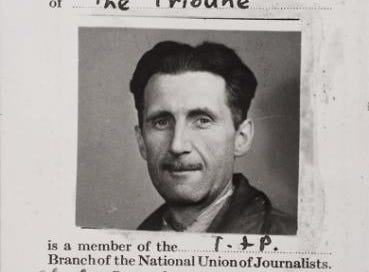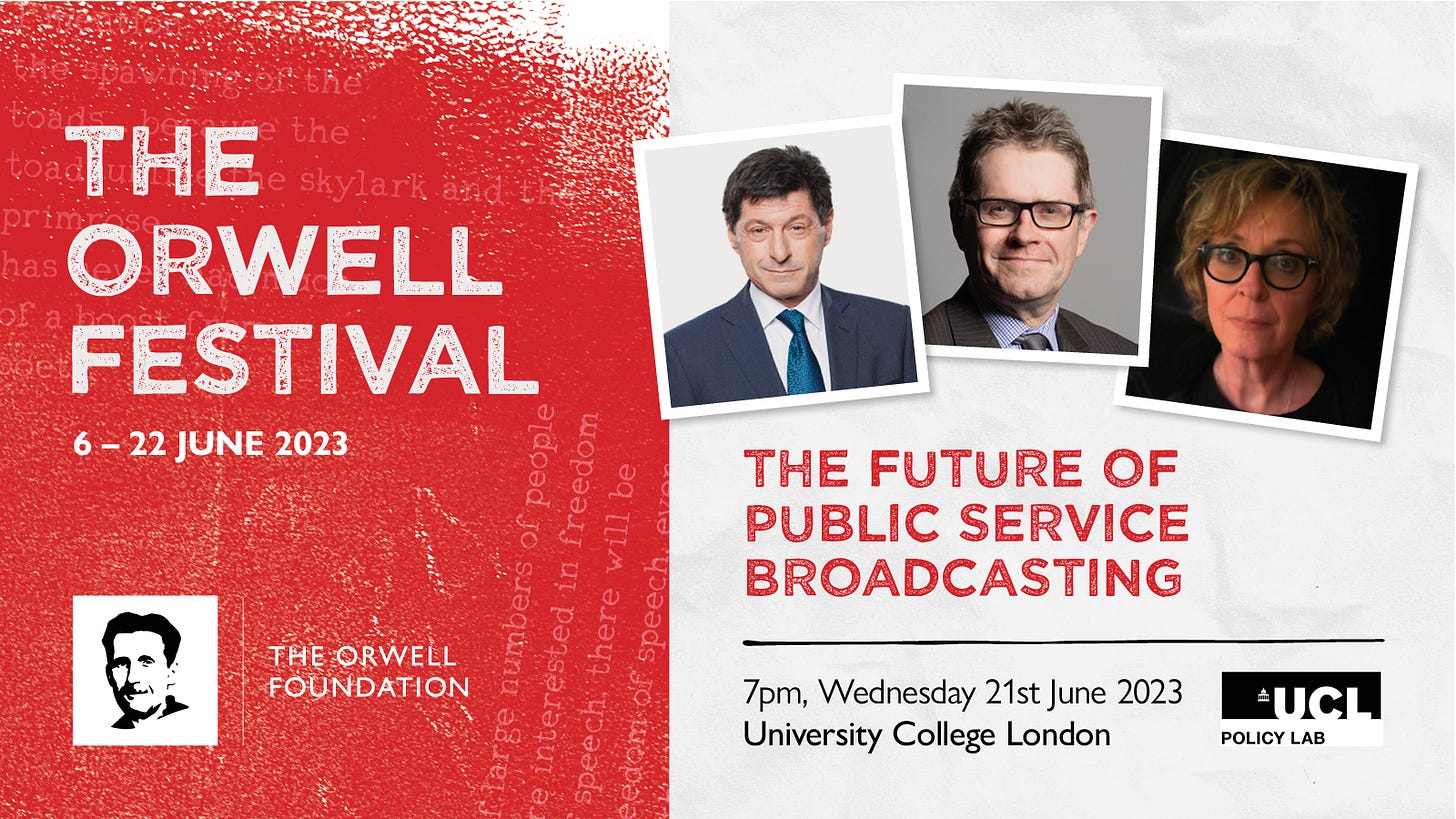The Orwell Prize 2023: In Front of Your Nose
Orwell's diary helped him keep track of 'solid reality' in an uncertain world. How do our finalists see what is in front of their nose?
As George Orwell wrote, “to see in front of one's nose is a constant struggle”. Earlier this month, we asked the finalists for The Orwell Prizes for Journalism, Reporting Homelessness and Exposing Britain’s Social Evils what helps them see the world more clearly. For Orwell, it was keeping a diary - “otherwise, when some particularly absurd belief is exploded by events, one may simply forget that one ever held it".
Find out more about all of this year’s finalists, with links to their shortlisted work, on The Orwell Foundation website. The winners in all five categories, including The Orwell Prize for Political Writing and The Orwell Prize for Political Fiction, will be revealed on 22nd June.
Exposing yourself to the best version of the opposing argument is vital. Also, if you can’t explain the other side’s case in a way they would accept, you don’t properly understand it.
Helen Lewis - The Bluestocking (The Orwell Prize for Journalism)
Orwell also said that the best writing is "that which tells you what you know already". With that in mind, I take photos of absolutely everything - everywhere I go and everyone I interview. I do this so I never, ever forget exactly how things were and so that nothing can ever convince me that it was, somehow, less bad than I witnessed.
Vicky Spratt (The Orwell Prize for Reporting Homelessness)
One thing that helps me report on the UK is being Maltese – an outsider looking in.
Paul Caruana Galizia (The Orwell Prize for Journalism)
Chris: We are both from small towns and I think those links help pull you out of what quickly becomes insular media bubbles. Spending as much time out of the south east as possible is vital.
Maeve: Trust is everything and is by no means a given. Journalists have to work hard to earn it, but when you do the result can be human stories that work at a universal level.
Maeve Shearlaw & Christopher Cherry (The Orwell Prize for Exposing Britain’s Social Evils)
Something I’m really grateful for working at The Bristol Cable is that I’m given the time to consider how to tell the stories I tell, and to get a better sense of what’s really in front of me before I do.
I think I value time so much, when it comes to my journalism, because of where I started out: a local paper being decimated by cuts. The reporters and editors who weren’t made redundant were forced to do more with less, and faster. The quality of reporting took a hit.
Now at the Cable, a newspaper and cooperative dedicated to investigative reporting and redefining local media, I’m encouraged to be thorough and to dive deeper into a subject. It’s a real privilege to be a part of the team.
Sean Morrison (The Orwell Prize for Journalism)
“When I saw the prisoner step aside to avoid the puddle, I saw the mystery, the unspeakable wrongness, of cutting a life short when it is in full tide.”
George Orwell, ‘A Hanging’
The puddle is a punch to the gut. ‘A Hanging’ underlined the power of details in carrying a narrative. Right down to the hairs on the head of the condemned man. I think of a woman in Ukrainian village who, as shells landed around her home, refused to leave, to acknowledge the war. As tank fire landed nearby I noticed she had still done her eye-makeup. Or the young soldier fighting on the frontlines in the early days of the war, his father had been killed beside him in the trenches, and he stood in the snow wearing a pair of tennis shoes, the unpreparedness of the Ukrainian forces as plain as that. During the earthquake in Turkey I watched, as the blanketed corpses of a family, waited for collection on the pavement in Antakya. Passers-by stepped around them, as if they were a puddle and emergency workers ignored them, focused instead on finding those still alive in the rubble.
Quentin Sommerville (The Orwell Prize for Journalism)
Good editing! These pieces would never have been written without Alice Spawls, the editor of the LRB, who gave me the confidence to take on new subjects and new forms of writing. The staff of the Review made excellent suggestions as well. Writing is often considered a solitary activity, but it's my experience that prose draws its strength from many people--editors, of course, but also colleagues who can talk through reporting puzzles, and very patient friends. They are the first advocates for the future reader.
Madeleine Schwartz (The Orwell Prize for Journalism)
The truth is it's very difficult. Almost every piece of research I've ever done has turned out to be a long circumambulation of something that was right in front of my nose. You hope that by maintaining some awareness of your own failings you can temper them slightly, but I don't think that's necessarily the case. I tend to talk to a lot of people – I did at least 100 separate interviews for the piece on the channel crossings – which I sometimes hope is a sort of insurance policy against my own stupidity. But at the end of the day, it's just you and your little brain trying to put it all together on a creaky laptop. Of course that's the fun of it too.
John Phipps (The Orwell Prize for Exposing Britain’s Social Evils)
My work is hopefully outward looking - making work about wider society - and so my starting point is always talking to people, spending time with them is everything. I am constantly astounded by what people tell me and how open they are with a stranger, it’s a privilege that I do not take lightly. Someone wrote about my work that it was concerned with "people more used to be spoken about than listened to” and that feels about right to me. It reminds me of a quote, attributed to Eleanore Roosevelt I think: “what people really need is a damn good listening to."
Craig Easton (The Orwell Prize for Exposing Britain’s Social Evils)





